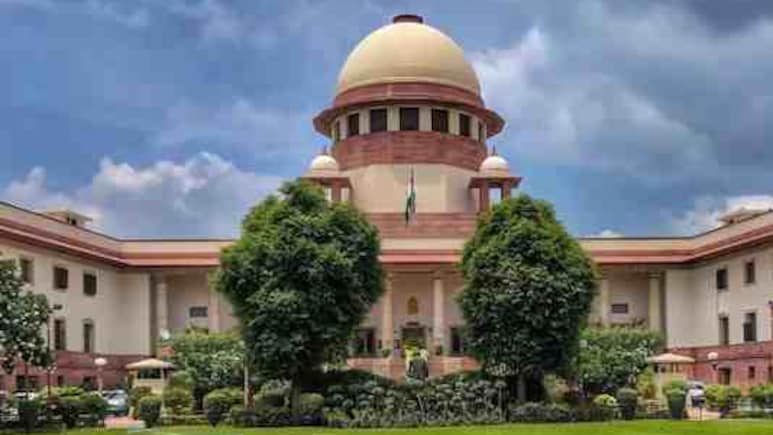
The Supreme Court on Tuesday questioned the Enforcement Directorate over its investigation of an alleged liquor scam involving TASMAC, or the Tamil Nadu State Marketing Corporation Limited.
For the second time in six months the court questioned the probe agency over two sets of raids conducted in March (and the discovery of 'incriminating material'), and asked it to explain itself.
"What happens to the federal structure? Are you not taking away the state government's right to investigate?" a bench led by Chief Justice BR Gavai asked the central agency, "Whenever you have a doubt ... 'is the state not investigating the offence'... can you go and do it yourself?"
However, in a significant moment, as the hearing proceeded the Chief Justice refrained from commenting further, noting, "In the last six years, I have seen many cases investigated by the ED... but now I do not want to say something, otherwise it will be reported (by the media), again."
In today's hearing, senior advocates Kapil Sibal and Mukul Rohatgi argued for the Tamil Nadu government, and asked how the state-run company could be raided, and electronic devices like computers seized, despite having filed police cases to investigate the alleged offences.
"We already filed FIRs... Why are they (the ED) coming in-between when we have already filed FIRs and we are investigating?" Sibal argued, while Rohatgi asked, "What happens to the right to privacy of TASMAC staff... how could they detain mobiles of the staff? Women employees were held back..."
To this Additional Solicitor General SV Raju, appearing for probe agency, said if the state had already filed 47 police cases and 'rampant corruption' continues, the ED could investigate.
"There are 47 police cases... there are large-scale irregularities, large-scale corruption. We are only investigating the money laundering aspect. These are all predicate offences."
Sibal countered by pointing to Section 66(2) of the Prevention of Money Laundering Act, which says that if the agency discovers evidence of another law being broken during an investigation, it is obligated to share that information with the relevant authority for further action.
At this point the Chief Justice also weighed in, asking Raju, "What happens to the federal structure? What happens to 66(2)", to which the Additional Solicitor General, said, "We found incriminating evidence... look at the nature of the FIRs, look how rampant corruption is."
"Then they have to give it to us... you take the phones, the detailed chats..." Sibal said.
In the last hearing too, in May, the top court had asked tough questions of the ED.
Chief Justice BR Gavai told the ED, "You may register cases against individuals... but corporations? Your ED is passing all limits! Issue notice, returnable after vacation."
The court then had told the agency to temporarily stand down its investigation.
The direction was welcomed by the ruling DMK; ex-Rajya Sabha MP RS Bharathi said the order was a 'blow to the BJP's efforts to malign the state government'. "BJP can't digest DMK's consistent electoral victories... That is why they're using the ED to defame us," he said.
'ED Has No Case'
The Supreme Court had been approached by the DMK-run state government and the state-run marketing corporation that has a monopoly over the wholesale and retail liquor trade. They sought to challenge an April 23 order by the Madras High Court green-lighting ED action in this matter.
TASMAC, i.e., the Tamil Nadu State Marketing Corporation Limited, itself is not named as an accused in any of these police cases and, in several cases, is the complainant, the plea noted.
And, in the absence of a predicate offence with TASMAC as an accused, the probe agency had no jurisdiction to initiate proceedings under the Prevention of Money Laundering Act, the DMK argued.
ED Claims Against TASMAC
Back in March the agency claimed it found "multiple irregularities" in TASMAC operations.
The ED also said it found "unaccounted" cash worth Rs 1,000 crore.
Specifically, it said it had found "incriminating" data related to corporate postings, and transport and bar licence tenders, as well as indent orders 'favouring' a few distilleries.
There was also "evidence", the ED said of fraudulent pricing, i.e., surcharges of Rs 10 to Rs 30 per bottle sold by TASMAC outlets imposed with the "involvement" of TASMAC officials.
The raids were repeated days later.
READ | Probe Agency Raids In Tamil Nadu Over Alleged Liquor Scam
Ten premises were searched under the Prevention of Money Laundering Act, or PMLA, and the ED claimed to have found 'manipulated data' indicating cheating during award of tenders.
After this, Tamil Nadu Excise Minister S Muthusamy launched a counterattack, accusing the ED of harassing state government officials. He accused the agency of a 'political vendetta' and said searches of TASMAC's offices, in Chennai and elsewhere, had 'ulterior political motives'.
He pointed out the ED had found no proof was found to substantiate the alleged irregularities, and said Chief Minister MK Stalin's government firmly supports all state officials at all times.
READ | Tamil Nadu Backs State Officials Amid Raids In Liquor Scam Case
The 'political vendetta' reference was to claims by the opposition the BJP uses federal agencies to target rival political leaders and parties, particularly before a major election.
The alleged TASMAC liquor scam has erupted just as the ruling DMK and the main opposition, the AIADMK (and its on-again, off-again ally, the BJP) prep for next year's Assembly poll.
Track Latest News Live on NDTV.com and get news updates from India and around the world

